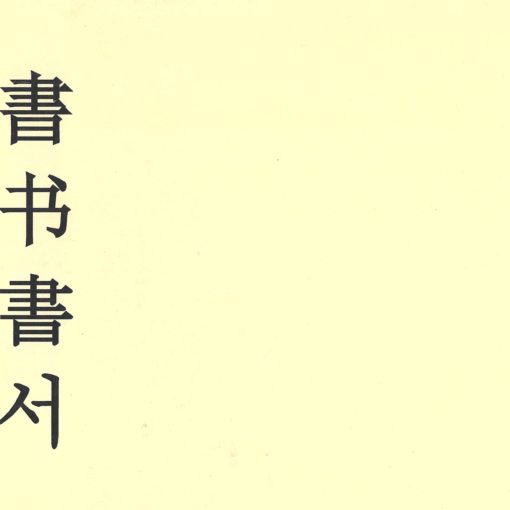Dear CEAL Colleagues:
I wanted to let you know that a couple of weeks ago the North American Coordinating Council on Japanese Library Resources (NCC) reached out to me regarding the matter below:
“In December 2020, the Agency for Cultural Affairs (Bunkacho) asked for public comments on the Report of the Regulations on Library Rights and Restrictions. Japanese Studies librarians and Japanese Studies scholars provided their feedback via this public comment. The main objective was to emphasize how important it is to revise the current copyright law to remove obstacles to access Japanese materials, especially those provided by the National Diet Library of Japan (and that includes overseas access). Professor Shoji YAMADA (International Research Center for Japanese Studies) is also NCC-Japan Liaison. He has advised that in addition to the individuals’ comments, it would be more impactful to have letters from established organizations to strengthen the arguments.”
With the support of the CEAL Executive Board, on behalf of the CEAL, I have just submitted a letter, requesting that further consideration be given to the revision of Japanese copyright law Article 31 that addresses issues of access to Japanese resources outside of Japan, particularly in North American institutions. The letters were sent to the following Japanese officials to support our Japanese Studies colleagues and scholars:
- Mr. Koichi HAGIUDA, Minister, Ministry of Education, Culture, Sports, Science and Technology
- Mr. Ryohei MIYATA, Commissioner for Cultural Affairs, Agency for Cultural Affairs
- Mr. Motonobu YOSHINAGA, Director, National Diet Library
The letter was crafted with the help from Setsuko Noguchi, Chair of NCC-ILL/DD Committee, Fabiano Rocha, Chair-Elect of NCC and Chiaki Sakai, CEAL CJM Chair.
The CEAL believes that it is crucial for us to support our constituents and fellow organizations and believes that our efforts are in line with the CEAL’s objectives and our endeavours that we have made along with NCC and SCSL for the CEAL Statement on Collection Development and Acquisition Amid the COVID-19 Pandemic last summer.
For your information, here is the content of the letter:
Re: CEAL Statement in Support of the Revision of Article 31 of Japanese Copyright Law
On behalf of librarians and library professionals in the field of East Asian studies, the Council on East Asian Libraries (CEAL) would like to request that further consideration be given to the revision of Japanese copyright law Article 31 that addresses issues of access to Japanese resources outside of Japan, particularly in North American institutions.
In light of the Coronavirus pandemic, the majority of academic institutions and libraries in North America have been forced to close their facilities since March 2020, resulting in limited to zero access to physical collections. Many of those institutions are still unable to make specific plans for reopening. Needless to say, the demand for remote access to resources in electronic formats has exponentially increased. Similarly, librarians have also needed to rely on the expanded use of electronic resources when providing reference services.
Due to the restrictions imposed by the Japanese copyright law, Japanese resources have always been difficult to obtain, and the pandemic has further exacerbated the existing challenges. Hence, there was great hope that the feedback collected via the public comments on the proposals for the “Revision of the Rules on Library Rights Restrictions” conducted from December 4 to December 21, 2020 by the Agency for Cultural Affairs would have been more explicitly integrated in the proposal.
Upon close review of the summary of the public comments, we regret to say that the needs for overseas users of Japanese resources were not adequately reflected. Therefore, further discussions among the relevant groups to reconsider the points outlined below regarding the improvement of access to resources would be greatly appreciated.
1. National Diet Library Digitized Contents Transmission Service (Article 31.3)
a. In the event that the access to the National Diet Library Digitized Contents Service becomes available to individuals in Japan through authentication with ID and password, we would appreciate that the same level of service be extended to overseas patrons.
i. For individual scholars and researchers who have registered and acquired IDs and passwords to access the service in Japan, we would like to have permission to continue using the same IDs and passwords to access the service from overseas.
b. For member libraries of the National Diet Library Digitized Contents Transmission Service, we request that librarians are permitted to have access to the authorized library operating terminal(s) remotely via VPN to enable the provision of reference and instruction services to their patrons.
c. The current conditions of use for overseas member libraries are limited to viewing only of the digitized contents. We request that libraries are permitted to allow the printing and downloading of contents in the same manner as they are permitted to member libraries in Japan.
2. Delivery methods of photocopied or scanned materials from Japanese libraries and related organizations (Article 31.1)
a. During the pandemic, university campuses and libraries remain closed or offer very limited services and access to facilities and physical collections, preventing patrons from retrieving physical items at the library. That includes photo duplication or scanned copies of materials from Japan that are sent via courier or regular mail. We hope that the revision of the copyright law will allow the electronic transmission of materials (i.e., PDF files or temporary URLs) directly to requesting libraries and patrons, effectively removing barriers to access to resources.
The Coronavirus pandemic has dramatically reshaped the way libraries provide access to resources and how patrons are able to access them both in Japan and worldwide. It is timely that the copyright laws be revised to reflect the needs of the scholarly environment and that barriers be removed to allow for a more seamless flow and access to information. With that in mind, the Council on East Asian Libraries strongly urges that further discussions be had on the matter, and we thank you in advance for your kind consideration.
Respectfully yours,
Hana Kim
President
The Council on East Asian Libraries
Sincerely,
Hana Kim
President, Council on East Asian Libraries




